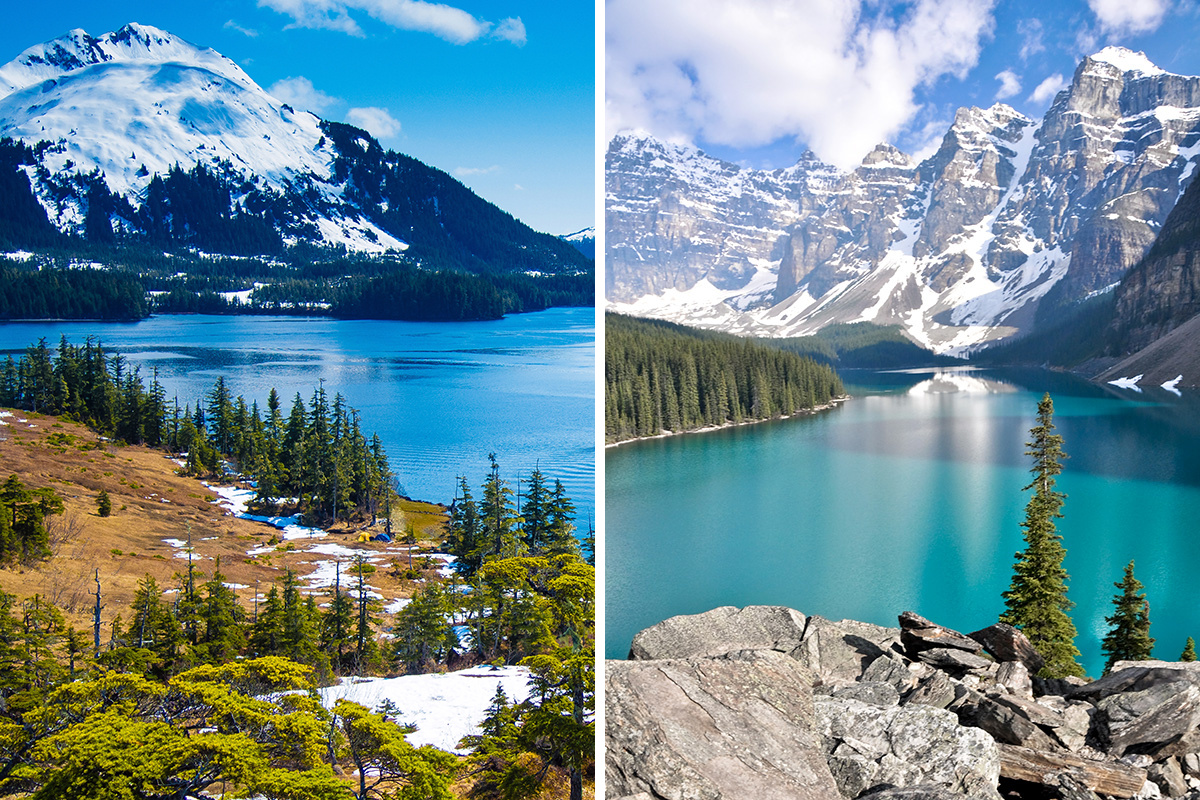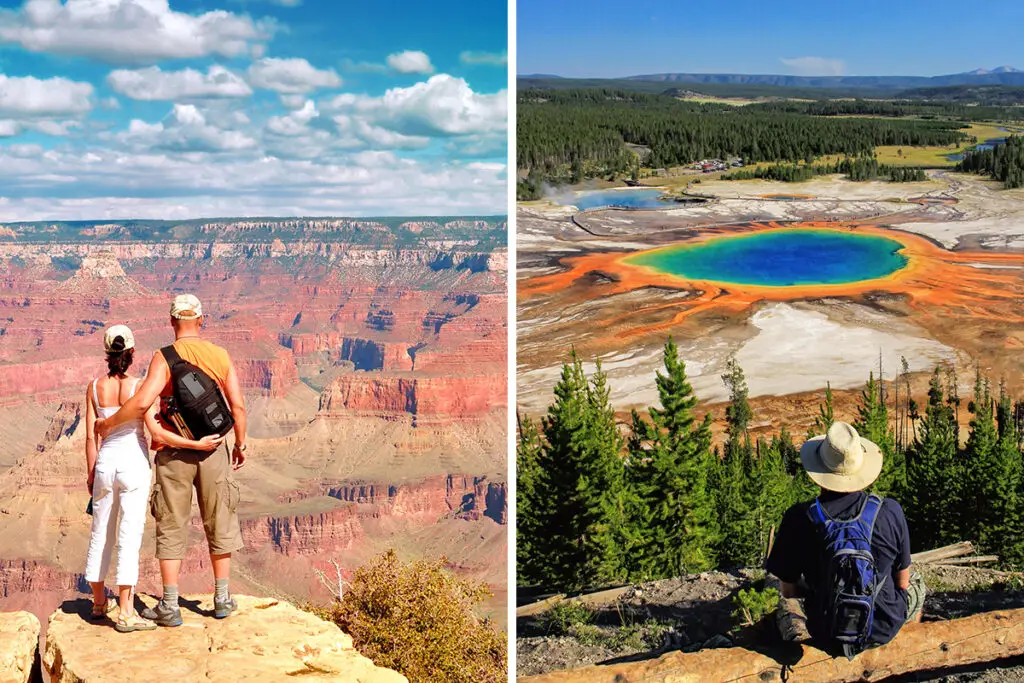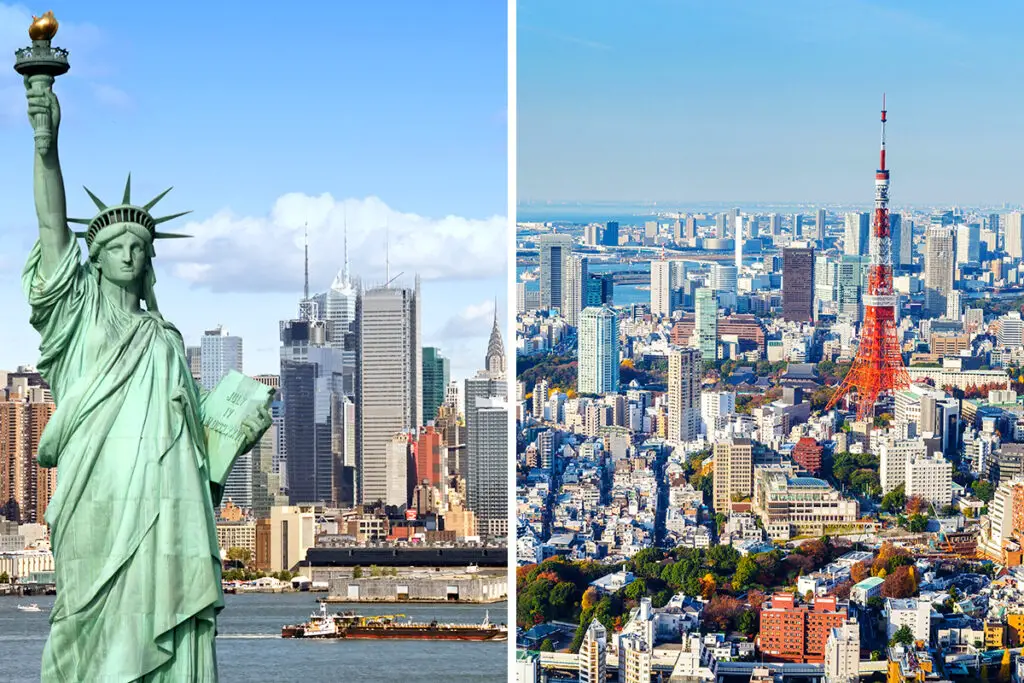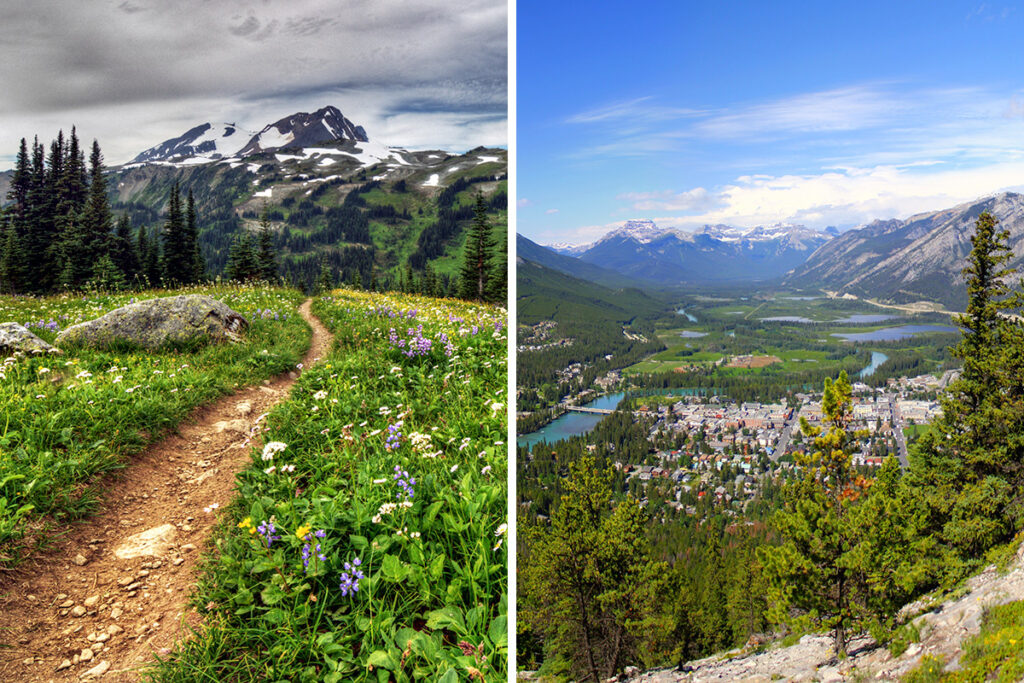The allure of the unknown, the call of adventure, and the promise of discovery, isn’t that what traveling is all about? Alaska, with its wild, untouched beauty, and Canada, a nation filled with diverse landscapes and vibrant cities, beckon with promises of unforgettable experiences. So, what are you waiting for? Dive in and let’s unlock the unique histories and cultures of these captivating destinations.
History & Culture
Let’s step back in time and start with the unique histories of Alaska and Canada. Both areas boast a rich past, filled with tales of exploration, survival, and culture.
The history of Alaska is deeply intertwined with the indigenous people who first called this land home. The native cultures here, including the Tlingit, Haida, and Inuit, offer a vibrant tapestry of stories, folklore, and traditions. From totem poles standing tall in forest clearings to age-old fishing practices, Alaska’s cultural heritage is a testament to the resilience of its native communities.
Across the border, Canada’s history unfolds as a captivating tale of exploration and settlement. From the First Nations to the French and British settlers, the history of Canada is a dynamic blend of cultures and traditions. This fusion is reflected in Canada’s cultural fabric, where the English and French languages coexist, and the indigenous traditions continue to thrive.
Alaska’s gold rush era, a period of fevered gold prospecting in the late 19th and early 20th centuries, left an indelible mark on its history. This gold-seeking frenzy drew thousands of adventurers, shaping the state’s character and contributing to its image as the “Last Frontier”.
In contrast, Canada’s culture has been shaped significantly by its immigrant populations. With an open immigration policy, Canada has welcomed people from all over the world, creating a multicultural society that embraces diversity.
So, when it comes to history and culture, Alaska and Canada each offer a unique and fascinating journey. Alaska, with its indigenous roots and frontier history, is a land of survival and adventure. On the other hand, Canada’s history reveals a diverse cultural mosaic, reflecting its embracing attitude towards immigrants.
Both lands have histories that have left deep imprints on their modern identities, promising a compelling exploration for any traveler. Your choice will ultimately depend on which historical tapestry resonates more with you. Ready to make a choice?
Attractions & Activities
From majestic peaks to bustling cities, both Alaska and Canada boast a wealth of attractions and activities. Whether you’re a nature enthusiast or a history buff, each destination has its unique offerings that can turn your journey into a memorable experience.
In Alaska, the untamed wilderness is the star attraction. Denali National Park, home to North America’s tallest peak, Mount Denali, towering at 20,310 feet (6,190 meters), is a paradise for hikers and wildlife enthusiasts. Whether you’re watching grizzlies in their natural habitat or hiking the scenic trails, the experiences here are truly unparalleled.
On the other hand, Canada’s diverse landscape offers a wide array of attractions.
The towering Rocky Mountains in Alberta, the stunning vistas of Banff National Park, and the thundering roar of Niagara Falls in Ontario are just a few examples. Each of these sites provides you with opportunities for outdoor activities such as hiking, mountain biking, and sightseeing that can make your trip more enjoyable and memorable.
For those keen on exploring urban attractions, Alaska’s cities like Anchorage and Juneau have plenty to offer. Anchorage, with its fascinating museums like the Alaska Native Heritage Center, and Juneau, with its historic sites like the Alaska State Capitol, offer glimpses into the state’s rich history and culture.
Meanwhile, Canada’s major cities such as Toronto, Vancouver, and Montreal brim with cultural attractions. Toronto’s iconic CN Tower, Vancouver’s Stanley Park, and Montreal’s historic Old Town are must-visit urban attractions that showcase Canada’s architectural marvels and urban culture.
In summary, both Alaska and Canada offer a diverse array of attractions and activities. Alaska’s unparalleled wilderness and its unique wildlife encounters make it a haven for nature lovers, while Canada’s diverse landscapes and vibrant cities offer a mix of natural and urban explorations. The choice between the two depends on your preference for untamed wilderness or a blend of natural beauty and urban charm.
Eating, Drinking & Nightlife
The culinary scene, local beverages, and nightlife can add a different flavor to your travel experience. Whether it’s the taste of the local cuisine, the flavor of regional drinks, or the rhythm of the night, let’s take a closer look at what Alaska and Canada have to offer.
In Alaska, seafood lovers are in for a treat. Fresh, locally sourced dishes like King Crab legs, wild salmon, and halibut are mainstays on Alaskan menus. You’ll find these delicacies served in everything from high-end restaurants to local food stalls.
In contrast, Canada’s diverse population has resulted in a rich culinary scene. Whether it’s poutine in Quebec, butter tarts in Ontario, or fresh lobster in Nova Scotia, each region offers a unique taste of Canada.
When it comes to drinks, Alaska’s craft beer scene stands out. With a burgeoning number of breweries across the state, including Anchorage’s Midnight Sun Brewing Company, beer lovers will find plenty to cheer about.
On the other side, Canada is known for its ice wines, a sweet dessert wine made from grapes naturally frozen on the vine. Wineries in regions like Niagara Peninsula in Ontario are worth visiting for a taste of this Canadian specialty.
As for nightlife, Alaska’s long summer days often lead to vibrant nights, especially in its cities. Anchorage’s downtown area, for instance, is buzzing with bars and live music venues.
In Canada, the nightlife varies by city. Toronto, Montreal, and Vancouver offer a mix of trendy bars, live music, and dance clubs. Montreal’s vibrant festival scene also adds a unique flair to its nightlife.
To wrap up, both Alaska and Canada offer unique experiences when it comes to eating, drinking, and nightlife. From Alaska’s fresh seafood and craft beers to Canada’s diverse cuisine and renowned ice wines, your palate is sure to enjoy the journey. Add to this the varied nightlife, and you’ve got a recipe for an unforgettable trip.
Shopping
Shopping can be an exciting part of any travel experience, whether it’s for souvenirs, local crafts, or high-end goods. Let’s see how Alaska and Canada compare on this front.
In Alaska, shopping centers around local and indigenous arts and crafts. Whether it’s traditional Ulu knives, native Tlingit art, or Alaskan gold nuggets, you’ll find unique souvenirs to remember your trip. Anchorage’s 4th Avenue Market Place and Juneau’s downtown area are good places to start your shopping journey.
On the other hand, Canada offers a wide range of shopping experiences. In cities like Toronto and Vancouver, you’ll find high-end boutiques and international brands. But Canada also celebrates its local artisans. The Public Market on Granville Island in Vancouver is a great place to find locally made crafts, food, and art.
In summary, whether it’s local crafts in Alaska or a mix of high-end and local shopping in Canada, each destination offers a unique shopping experience. If you value indigenous art and souvenirs, Alaska might be your pick. But if you’re looking for a mix of luxury brands and local crafts, Canada might be the choice for you.
Accommodation
When it comes to finding a place to stay, both Alaska and Canada offer a wide range of accommodations, each with its unique charm and comforts. Whether you’re looking for a cozy lodge, a luxury hotel, or a campsite under the stars, you’ll find something to suit your tastes and budget.
In Alaska, accommodations often reflect the state’s natural beauty and rugged charm. Rustic lodges and cabins, such as those found in Denali National Park, offer a unique and immersive Alaskan experience. Here, you can fall asleep to the sound of nature and wake up to stunning wilderness views.
For a more urban experience, cities like Anchorage and Juneau offer luxury hotels and B&Bs. These often provide modern amenities and are within walking distance of local attractions.
In Canada, the variety of accommodations is as diverse as the country itself. High-end hotels in cities like Toronto, Montreal, and Vancouver provide luxury and convenience. These establishments often offer stunning city views and are close to major attractions and dining options.
For nature lovers, Canada’s national parks offer campsites and cabins. For instance, the oTENTik tents in Banff National Park offer a unique blend of tent and cabin, perfect for enjoying Canada’s stunning outdoor landscapes.
In summary, both Alaska and Canada offer a range of accommodations to suit different travel styles and budgets. Whether it’s a rustic lodge in Alaska’s wilderness or a high-end hotel in a bustling Canadian city, the choice between the two would hinge on your preferred mix of comfort and adventure.
Family-Friendliness & Children’s Activities
Family travel requires careful planning to ensure there are activities that both adults and children can enjoy. Let’s compare what Alaska and Canada have to offer in terms of family-friendliness and children’s activities.
Alaska is a fantastic place to introduce children to the wonders of nature. Family-friendly activities such as wildlife viewing, boat tours, and visits to wildlife conservation centers can be both fun and educational. The Alaska Sealife Center in Seward, for example, offers interactive exhibits and up-close encounters with marine animals.
On the other hand, Canada’s diverse landscape and urban centers offer a wealth of family-friendly activities. From exploring dinosaur fossils at the Royal Tyrrell Museum in Alberta to skating on the Rideau Canal in Ottawa during winter, children will have ample opportunities for fun and learning.
Canadian cities also offer numerous kid-friendly museums and science centers. The Ontario Science Centre in Toronto and the Telus World of Science in Vancouver are packed with interactive exhibits that make learning fun.
In conclusion, both Alaska and Canada provide numerous activities that can make a family vacation fun and educational. Alaska’s wildlife and natural wonders make it an outdoor classroom, while Canada’s blend of outdoor and urban activities provides a variety of options for families.
Getting There & Getting Around
When planning a trip, how you’ll get to your destination and how you’ll get around once you’re there are important considerations. Let’s see how Alaska and Canada stack up in terms of accessibility and local transportation.
To get to Alaska, most travelers fly into Ted Stevens Anchorage International Airport, which is approximately 2,400 miles (3,862 kilometers) from San Francisco. From there, smaller regional airlines can take you to other parts of the state.
Canada, on the other hand, has numerous international airports across the country, including Toronto Pearson International Airport and Vancouver International Airport. The distance from San Francisco to Toronto is roughly 2,250 miles (3,621 kilometers), while Vancouver is about 800 miles (1,287 kilometers) away.
Once in Alaska, getting around can be an adventure. In addition to car rentals, Alaska’s unique geography often makes planes and ferries common modes of transportation. Alaska’s Marine Highway System, for instance, is a ferry service that connects many coastal towns.
In Canada, transportation options are more diverse. In cities, public transit systems, including buses, trams, and subways, make getting around easy. For longer distances, Canada’s extensive train network, such as the VIA Rail, provides a scenic and comfortable travel option.
In conclusion, whether you choose Alaska or Canada, consider your comfort with different modes of transportation. If the thought of flying on small planes or taking ferries excites you, Alaska could be the way to go. If you prefer more traditional modes of transportation, Canada’s extensive and efficient networks might be more your speed.
Weather
The weather can often play a significant role in how much you enjoy your vacation. As such, understanding the climate of Alaska and Canada is vital in planning your trip.
Alaska, despite its reputation for harsh winters, has a surprisingly varied climate.
During summer (June to August), temperatures in cities like Anchorage can reach up to 60-80 degrees Fahrenheit (15-27 degrees Celsius), perfect for outdoor activities. However, in winter (December to February), temperatures can drop as low as -20 degrees Fahrenheit (-29 degrees Celsius), transforming the state into a snowy winter wonderland.
Canada, on the other hand, is a vast country with diverse climates. In cities like Vancouver on the west coast, you can expect mild winters and warm summers, similar to the climate in Seattle.
But in cities further east, like Toronto, winters can be freezing with temperatures falling below 15 degrees Fahrenheit (-9 degrees Celsius) in January. Summers in Toronto are typically warm with temperatures around 80 degrees Fahrenheit (27 degrees Celsius) in July.
In conclusion, whether you choose Alaska or Canada, be prepared for the climate. If you’re a fan of winter activities and don’t mind the cold, winter in either Alaska or eastern Canada could be for you. If you prefer warmer weather, summer in either destination or winter on Canada’s west coast would be more comfortable.
Safety
Safety is a key factor when choosing a holiday destination. Let’s look at how Alaska and Canada fare in terms of safety for travelers.
In general, both Alaska and Canada are considered safe for travelers. Like anywhere else, some areas may have higher crime rates, but with proper precautions, your trip should be a safe one.
Alaska, despite its remoteness, maintains a good level of safety. In urban areas like Anchorage, it’s always wise to be aware of your surroundings, especially at night.
Similarly, Canada is known for its safety and politeness. Larger cities like Toronto and Vancouver are generally safe, but it’s recommended to stay alert in crowded areas and at night.
An evergreen topic related to safety in these destinations is wildlife. In Alaska, you might encounter bears, moose, and other wildlife. Remember to keep a safe distance and never feed the animals. In Canada, especially in national parks, you might come across bears and elk. Follow the same rules as you would in Alaska.
In summary, both Alaska and Canada are generally safe destinations. No matter where you go, staying alert, taking precautions, and respecting local wildlife will help ensure a safe and enjoyable trip.
Cost
Budgeting for your trip is a key part of the planning process. Here, we’ll compare the costs associated with traveling to Alaska and Canada.
In Alaska, costs can vary greatly depending on your travel style. For instance, meals at a restaurant can range from $10 to $30. Lodging costs can also vary, with hotels in cities like Anchorage costing around $150 per night.
Canada, on the other hand, tends to be somewhat more affordable. A meal at a restaurant might cost around CA$15 to CA$30 (roughly $12 to $24). Accommodation costs can vary widely, but you can expect to pay around CA$100 to CA$200 (approximately $80 to $160) per night for a mid-range hotel in major cities.
For transportation, renting a car in Alaska might cost around $50 per day, while in Canada, you might pay around CA$35 to CA$60 (approximately $28 to $48) per day. Remember, these costs can vary depending on the season and the type of car.
In conclusion, while costs can vary depending on your travel style and the season, Canada generally tends to be more affordable than Alaska. As always, planning and budgeting in advance will help you make the most of your vacation.
Which Is Better – Alaska or Canada?
Making a choice between Alaska and Canada can be challenging, given the unique offerings of each destination. Reflecting on what we have covered might help you make an informed decision.
When it comes to history and culture, both destinations shine in their unique ways. Alaska, with its rich Native American heritage and captivating gold rush history, offers a taste of a unique blend of cultures. On the other hand, Canada, a cultural mosaic, offers a diverse cultural experience from coast to coast.
In terms of attractions and activities, Alaska is the haven for nature lovers with its wildlife encounters and the Northern Lights. However, Canada matches up with its beautiful national parks, historic sites, and vibrant cities.
The culinary scenes in both destinations offer different experiences. If you’re a seafood lover, Alaska’s fresh catches might be the highlight of your trip. But if you’re keen on a diverse food scene from world-class poutine to peameal bacon sandwiches, Canada will not disappoint.
When it comes to shopping, Canada’s bustling city centers offer a broader range compared to the more local and unique offerings in Alaska.
Accommodation options in both destinations can cater to a range of budgets and preferences. However, remember that in Alaska, some remote areas might offer limited options compared to Canadian cities. For family-friendly activities, both destinations offer plenty, but consider the mode of transportation and distances in Alaska compared to Canada.
Considering the weather, Canada offers a wider range of climates. If you like milder weather, consider the west coast of Canada. For those who love snowy winters, both eastern Canada and Alaska provide great winter experiences.
Regarding safety, both destinations are generally safe. Respect for local wildlife and awareness in urban areas is important in both places. And finally, in terms of cost, Canada generally tends to be more affordable, but the choice would depend on your budget and preferences.
In conclusion, your choice between Alaska and Canada would depend on your preferences. If you’re looking for solitude, wilderness, and unique experiences, Alaska is the way to go. If you prefer a mix of city life, diverse culture, and natural beauty, Canada could be your perfect choice. Both destinations have much to offer, and you won’t be disappointed with either choice.







